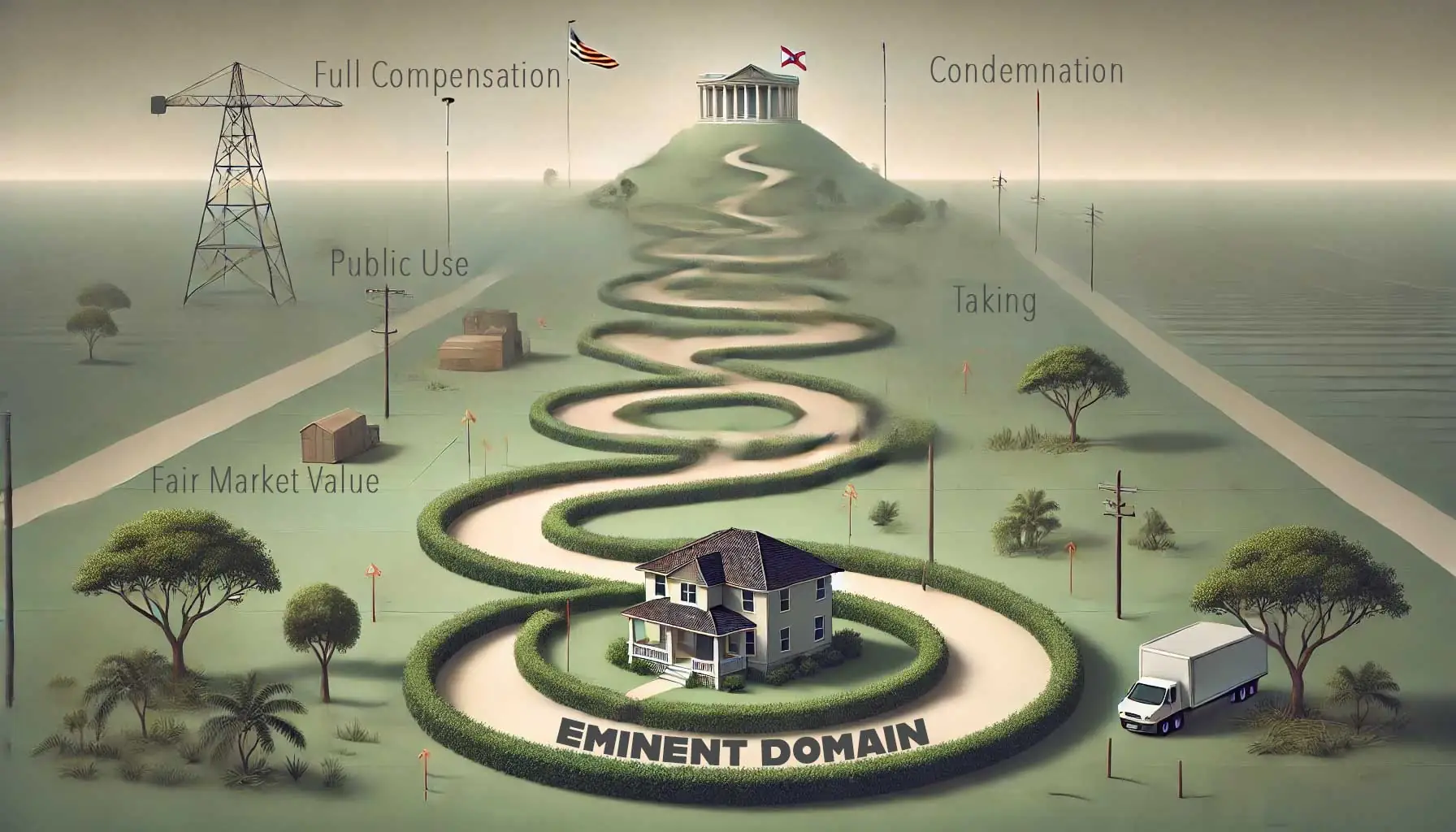
The Eminent Domain Process in Florida: What to Expect Step by Step
If you’ve been notified that your property is being taken under eminent domain, you may feel confused or overwhelmed. What happens next? Do you have any say in the process?
Understanding each stage of an eminent domain case can help you prepare and ensure you maximize your compensation.
Here’s what you can expect step by step.
Understanding the Eminent Domain Process
Eminent domain follows a structured legal process, meaning the government must follow certain procedures before taking your land.
Each step has legal implications and opportunities for property owners to challenge the taking or negotiate better compensation.
Step 1: The Government Identifies Your Property for Public Use
The process begins when the government determines that your property is needed for a public project such as:
- Highway expansions
- Utility development (power lines, pipelines, water systems)
- Public buildings or parks
- Redevelopment projects
At this stage, you won’t receive an official notice yet, but government agencies may conduct land surveys and appraisals to assess your property.
Your rights at this stage:
- You are not required to grant access to surveyors unless they have legal authority.
- If approached by government representatives, you should consult an eminent domain attorney immediately.
Step 2: You Receive an Eminent Domain Notice
If your property is selected for the project, you will receive a written notice informing you of the government’s intent to take your land.
This notice will typically include:
- The reason your property is needed
- The agency responsible for the taking
- An appraisal or estimated offer for compensation
At this point, many property owners believe they must accept the government’s offer. That is not true— you have options.
Your rights at this stage:
- You are not obligated to accept the first offer.
- You have the right to challenge the necessity of the taking.
- You can hire an attorney to review and negotiate the compensation.
Step 3: The Government Makes a Compensation Offer
After issuing a notice, the government will conduct an official appraisal to determine how much they believe your property is worth.
This offer is often lower than what you deserve because:
- The government may undervalue your land.
- Business damages and relocation costs may not be included.
- The offer may not consider severance damages to remaining property.
You have the right to dispute this amount and negotiate for a higher payout.
Your rights at this stage:
- You can hire an independent appraiser to determine the real value.
- You can challenge the offer through legal action.
Step 4: Negotiations and Pre-Suit Mediation
Before going to court, you and the government have an opportunity to negotiate a fair settlement.
This is where having an experienced eminent domain attorney can make a significant difference. In many cases, attorneys can secure settlements far greater than the initial offer.
If negotiations fail, the case moves to court.
Your rights at this stage:
- You can enter pre-suit mediation to try to resolve the case without litigation.
- If mediation fails, you can challenge the case in court.
Step 5: The Court Determines the Outcome
If you and the government cannot reach an agreement, the case moves to litigation.
A judge or jury will review:
- Whether the taking is justified
- The true market value of your property
- Whether you are entitled to additional compensation
If the court rules in favor of the government, the taking proceeds. However, the court may increase your compensationbased on the evidence.
Your rights at this stage:
- You can present expert testimony from real estate appraisers.
- You can argue that the taking is unlawful or excessive.
- You can appeal the court’s decision if the ruling is unfair.
Final Step: Compensation and Relocation
If the taking proceeds, the government must pay you the final compensation amount.
At this point, you may need to:
- Relocate your business or home
- Use the funds to purchase a new property
- Seek additional legal action if the government fails to pay full compensation
Need Help with Eminent Domain?
If you are facing eminent domain, Brigham Property Rights can help. Contact us today for a free case evaluation.
